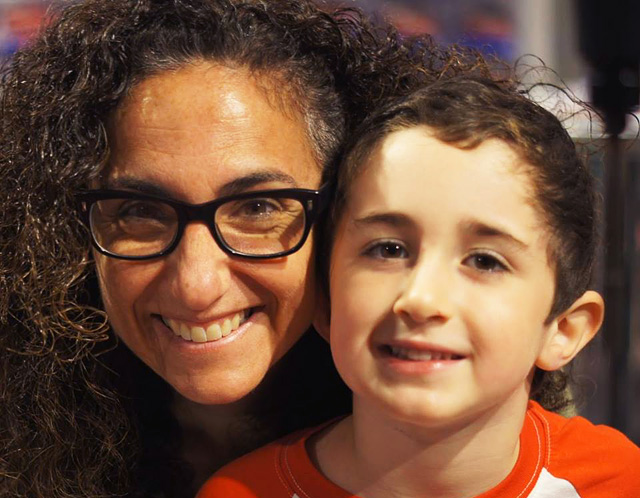By Nathalie Batista
Heidi Sadowsky was in her 40s hoping to become a mother but still hadn’t found her soul mate. At age 41 she was happy with her career choice, but found herself still single, and wanting to have the baby before she ran out of time.
“I explored anonymous donors, but that left me feeling cold inside,” she said. “I wanted my child to have a father.” She asked a male friend if he wanted to have a child together. “A little less than one year later, our son was born.”
As stigma about alternative child-rearing fades, more people are creating “parenting partnerships,” a term used for co-parenting minus the romantic relationship. In the 1950s, 65 percent of all young children were being raised in traditional breadwinner-homemaker families. Today only 22 percent of children are being raised in marriages.
People are using alternate means of creating a family with assisted reproductive technology. They are using gamete donors, gestational carriers or traditional surrogacy. Children are now raised in different types of families. Some even grow up with two moms and two dads.
In Sadowsky’s case, she had an agreement with a friend she had known for over 20 years. When they were in their 30s, they had agreed to have a child at 36 if she was still single. At 36, Sadowsky wasn’t happy with her career choice so decided to become a nurse. When she turned 40, she was still single, but had just changed careers from being a corporate drone to becoming a nurse, she said. “Before I considered having a child outside of an intimate relationship, I wanted to make sure I loved my new career.”
Sadowsky conceived at home by artificial insemination and said she was lucky to get pregnant right away. “I had an appointment with a fertility specialist in the event this didn’t work,” she said. Couples usually have legal parenting agreements but her child was born six weeks early and they didn’t get to finalize the agreement.
Sadowsky is the primary physical custodian of the child. The child stays with his/her dad once a week. “Things we’ve discussed formally are financial support and mutual decision making,” said Sadowsky. Other things to discuss between parenting partners is division of physical custody, holidays, vacations, education, religious observances. Anything that would comprise a custody agreement between parents,” said Sadowsky.
Parenting partnerships are becoming more common in the 21st century not only with homosexuals, but also heterosexual individuals. Sadowsky has not given up on love just because she decided to have a child outside a romantic relationship with her homosexual partner. “What is driving parenting partnerships — for me, I was over 40 and running out of time to fulfill my dream of having a biological child. I figured I had the rest of my life to meet my soul mate or life partner but only a short window to have a child.”
Sadowsky and her partner go on family vacations as a family and he has been a longtime friend whom she loves. She doesn’t believe parenting partnerships have anything to do with someone being afraid to commit to a romantic relationship. “Absolutely not! I held out for that but just haven’t met the right guy yet,” she says. “I’ve dated plenty of men. Have had some unsuccessful relationships.”
Attorney Bill Singer, has focused on family formation and protection issues for non-traditional families for over 40 years. “There’s the movement ahead of multiple parent families,” he said. For instance, Singer cited one foursome, who are raising a child. A lesbian couple paired with a gay couple and they are raising two children. He also believes that the public is more accepting of alternative families. His job he says is providing legal protection.
“I feel very privileged to be able to focus on family formation because I feel I’m making a difference in people’s lives on a daily basis,” said Singer. “I can help and assist them to reach their goal. That’s very rewarding.”
The stigma of parenting partnerships will likely fade because there are many women who are taking control of their child bearing years. Independent, career-oriented women who want to have children now have more options. There are many websites that help people (of any sexual orientation) find a parenting partner.
These websites include:
familybydesign.com
coparents.com
modamily.com
pollentree.com
myalternativefamily.com
coparentmatch.com
Sadowsky’s advice for anyone considering a parenting partnership is to know what you want. “For a woman, do you really want a parenting partner or do you simply want a sperm donor with a bank account?” she says. “Know your parenting philosophy and discuss this with a prospective partner. Do not rush into this relationship — get to know your partner as this will be a lifetime relationship.”



